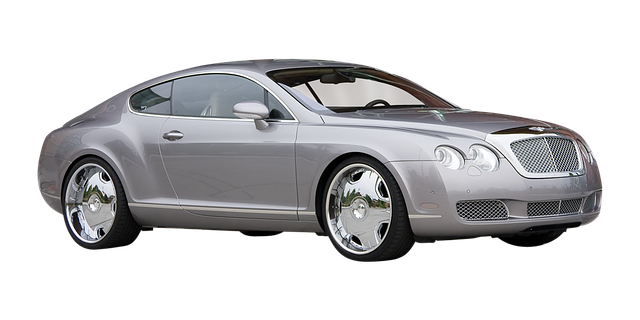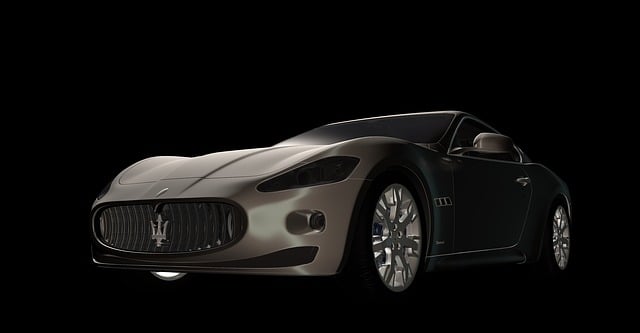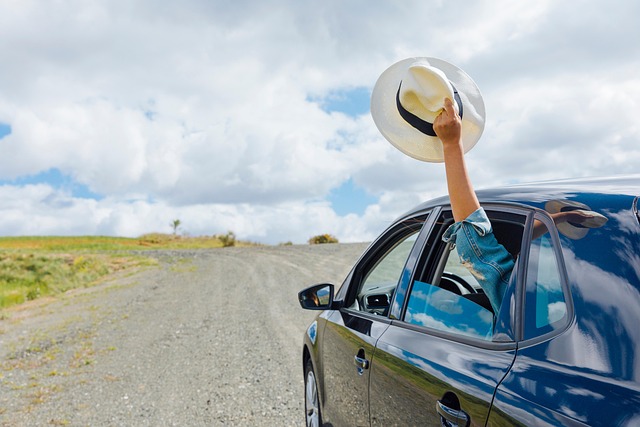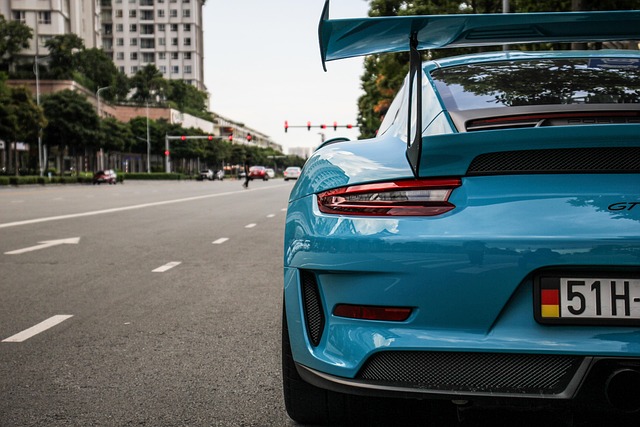Karachi’s Car Market: Trends Shaping Urban Ownership & Sustainability
Karachi, Pakistan's economic powerhouse, has witnessed a dramatic evolution in car ownership dy…….

Karachi, Pakistan's economic powerhouse, has witnessed a dramatic evolution in car ownership dynamics over the past decade, driven by factors like population growth, changing lifestyles, and environmental awareness. The city's automotive landscape is characterized by rising demand for fuel-efficient and electric vehicles (EVs), compact cars due to dense traffic, and the influence of ride-sharing services. Karachi serves as a microcosm for regional trends, with younger generations adopting shared mobility options over personal vehicle ownership. Government incentives and technological advancements are driving EV adoption, while ride-hailing services have altered car ownership patterns by offering flexibility and convenience. The future outlook includes autonomous vehicles and smart mobility solutions, aiming to reduce congestion and emissions, aligning with global sustainability goals.
“Unveiling recent trends in car ownership patterns, this article explores dynamic shifts in Karachi’s urban market, where a growing population fuels demand. We delve into the city’s unique car ownership landscape, analyzing a shift towards eco-friendly electric vehicles. Ride-hailing services are reshaping private ownership, while younger generations’ evolving relationship with cars is shaping future mobility. Moreover, environmental concerns drive sustainable transportation choices. Lastly, we gaze into the future, exploring autonomous vehicles and smart mobility solutions emerging in Karachi.”
- Car Ownership in Karachi: A Growing Urban Market
- Changing Preferences: The Shift Towards Electric Vehicles
- The Impact of Ride-Hailing Services on Private Ownership
- Younger Generations and Their Relationship with Cars
- Environmental Concerns Driving Sustainable Transportation Choices
- Future Trends: Autonomous Vehicles and Smart Mobility Solutions
Car Ownership in Karachi: A Growing Urban Market

Karachi, Pakistan’s economic powerhouse, has witnessed a significant shift in car ownership patterns over the past decade. The city’s bustling streets and expanding urban landscape have led to an increasing demand for vehicles, making it one of the fastest-growing markets in the country. With a population of over 15 million people, Karachi’s car ownership rates have been rising steadily, reflecting a changing lifestyle and growing disposable income among its residents.
This trend is particularly evident in the adoption of modern, fuel-efficient cars, as well as an interest in electric vehicles (EVs) due to environmental concerns and government incentives. The city’s dense traffic and challenging road conditions have also prompted many to opt for smaller, compact cars, while the rise of ride-sharing services has influenced purchasing decisions, leading to a mix of personal and shared mobility solutions. Karachi’s dynamic market is a microcosm of the broader regional trends in automotive preferences and ownership behaviors.
Changing Preferences: The Shift Towards Electric Vehicles

In recent years, Karachi, like many cities worldwide, has witnessed a significant shift in car ownership patterns. Changing preferences among consumers are driving the adoption of electric vehicles (EVs) as the new norm. This trend is not just a fad but a conscious move towards sustainability and reducing environmental impact. With advancements in technology, EVs offer a more eco-friendly alternative to traditional gasoline-powered cars, appealing to a growing segment of environmentally conscious citizens in Karachi.
The shift towards electric vehicles is evident in the increasing number of EV sales and rising popularity among various demographics. This change is further accelerated by government initiatives promoting sustainable transportation and incentives for early adopters. As Karachi continues to grapple with traffic congestion and air pollution, the embrace of electric cars could be a game-changer, potentially transforming the city’s automotive landscape.
The Impact of Ride-Hailing Services on Private Ownership

In recent years, the advent of ride-hailing services has significantly reshaped car ownership patterns across urban centers, including Karachi. These on-demand mobility solutions have introduced a new level of convenience and flexibility, allowing individuals to opt for shared rides rather than owning personal vehicles. This shift is particularly evident among younger generations who are more inclined towards embracing alternative transportation options.
Ride-hailing services offer immediate access to transportation, reducing the need for long-term commitments to car ownership. In Karachi, where traffic congestion and parking challenges are prevalent, these services have gained immense popularity. As a result, many residents are choosing to rent cars for specific trips rather than maintaining a private vehicle 24/7. This trend not only eases the burden of owning a car but also contributes to reduced road congestion and lower carbon emissions in the city.
Younger Generations and Their Relationship with Cars

In Karachi, a vibrant metropolis known for its bustling streets, there’s an intriguing shift in car ownership patterns among younger generations. Unlike past decades where owning a car was often seen as a symbol of status and independence, today’s youth are adopting a more nuanced relationship with vehicles. This change is driven by factors like rising urban congestion, environmental awareness, and evolving mobility preferences. Many young professionals in Karachi are opting for shared mobility options, public transportation, and electric two-wheelers for their daily commute, reducing the allure of personal car ownership.
This trend isn’t just about cost-saving measures; it reflects a desire for more sustainable and flexible mobility solutions. With advancements in technology, Karachi’s younger generation is embracing innovative ways to navigate the city, further challenging traditional car ownership models. This shift has significant implications for the automotive industry in Karachi, prompting manufacturers and dealers to adapt their strategies to cater to these evolving consumer preferences.
Environmental Concerns Driving Sustainable Transportation Choices

In recent years, environmental concerns have become a significant driving force behind changing car ownership patterns, particularly in densely populated cities like Karachi. With increasing awareness about climate change and air pollution, many residents are opting for more sustainable transportation options. Electric vehicles (EVs) have gained traction as an eco-friendly alternative to traditional gasoline-powered cars, with the government and private sectors in Karachi actively promoting their adoption through incentives and infrastructure development.
This shift is evident in the growing popularity of shared mobility services and public transport systems. Ride-sharing platforms and efficient bus networks are reducing the reliance on personal vehicles, thereby decreasing carbon emissions and traffic congestion. As Karachi continues to address its environmental challenges, these sustainable transportation choices are expected to become even more prevalent, reshaping the city’s automotive landscape in line with global trends towards greener and more responsible mobility.
Future Trends: Autonomous Vehicles and Smart Mobility Solutions

The future of car ownership in bustling cities like Karachi is set to be transformed by two key trends: autonomous vehicles and smart mobility solutions. Autonomous cars, also known as self-driving vehicles, are no longer a concept confined to science fiction; they are rapidly becoming a reality. These vehicles use advanced sensors, cameras, and artificial intelligence to navigate roads safely, promising to reduce traffic accidents and congestion. In Karachi, where the streets are often crowded and chaotic, autonomous vehicles could offer a much-needed respite, making commuting more efficient and less stressful for residents.
Smart mobility solutions complement this shift by offering on-demand transportation services that utilize technology to optimize routes and reduce unnecessary travel. This includes ride-sharing platforms and electric vehicle (EV) networks, which are gaining popularity worldwide. Karachi, with its growing digital infrastructure, is well-positioned to embrace these innovations. By integrating autonomous vehicles and smart mobility solutions into the urban landscape, Karachi could set an example for sustainable and efficient transportation, potentially reducing emissions and improving overall quality of life for its citizens.
The car ownership landscape in Karachi, driven by urban growth and evolving preferences, is experiencing a significant transformation. The shift towards electric vehicles, coupled with the influence of ride-hailing services and environmental concerns, is reshaping how younger generations perceive cars. As we look to the future, autonomous vehicles and smart mobility solutions are poised to further revolutionize transportation in Karachi, offering sustainable and efficient options that cater to the diverse needs of this vibrant metropolis.







